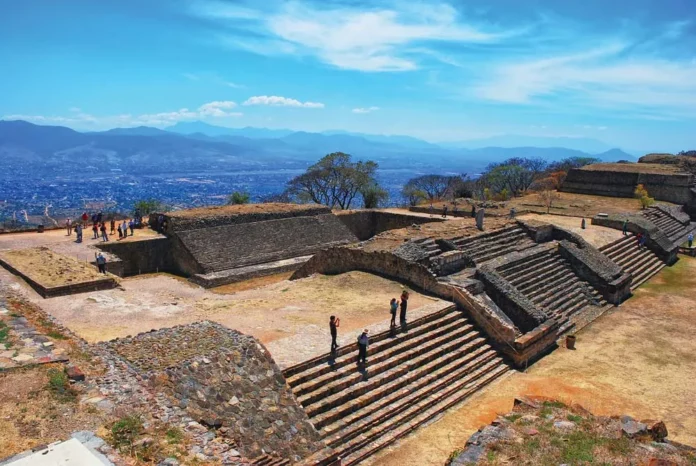The ancient Mayan city of Monte Albán is a prime example of how archaeology has shown that early cultures were much more collaboratively organized than previously thought. 12 of the 26 early urban locations examined by researchers showed signs of collective government as opposed to dictatorship. This case study exemplifies how spending on public infrastructure can result in sustainability over the long term.
The Oaxacan Valley, where Monte Albán was founded, is an arid area with irregular rainfall and limited water sources. Populations came to the area despite these challenging circumstances, suggesting they were probably drawn there by economic opportunities rather than compulsion from leaders or authorities. Household collaboration was required for the creation of the city to be effective. Shared labor and resources, such as wood for building materials, clay for pottery and tools, stone for grinding maize and other crops, and turkeys for food, were examples of this community endeavor.
A hierarchical social system may have existed at Monte Albán during its greatest period, which spanned from 450 to 700 CE, but unlike many other pre-industrial towns, it was not based on hereditary position or political power. Alternatively, it is believed that status disparities may have been brought about by the power of religion or by varying degrees of access to resources and land ownership. This shows there wasn’t a centralized monarch imposing policy or restricting inhabitants’ freedoms, even though there were differences among those residing in the city due to their money and influence.
Mount Albán is a fantastic illustration of how group effort can produce long-term sustainability even in the face of difficulty. It’s difficult to pinpoint exactly why this society opted for cooperative governance over authoritarian rule or what made them so successful while others failed, but it serves as a crucial reminder that even in the absence of powerful leaders or autocracies, communities are still capable of banding together and forging something greater than themselves in the face of adversity.



